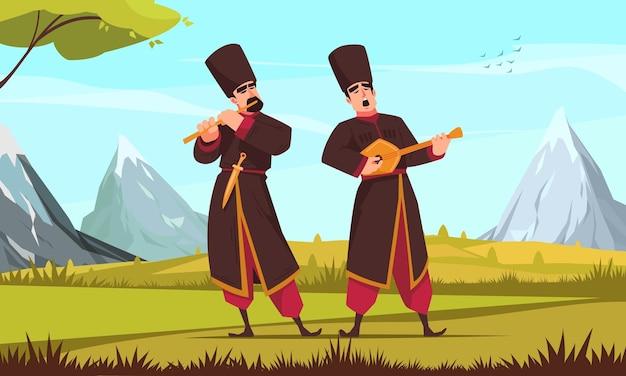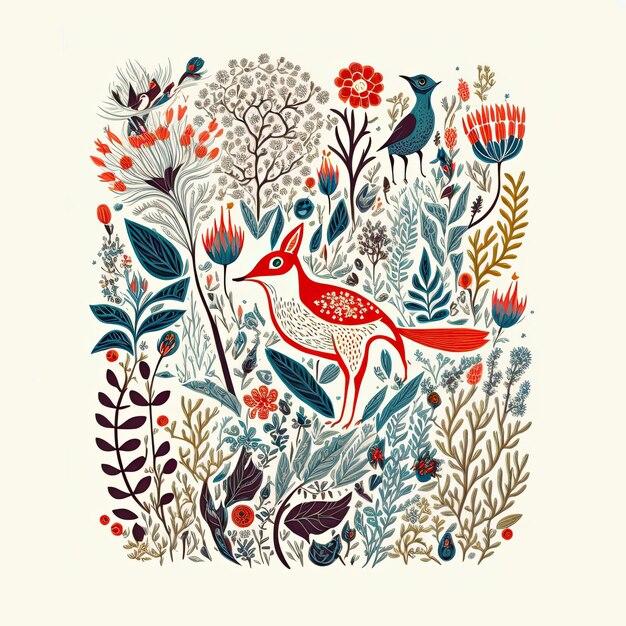In a world filled with rapid technological advancements and modernization, it’s easy to overlook the significance of folklore. But behind these seemingly simple tales lie a treasure trove of wisdom, cultural heritage, and a deep understanding of the human experience. So, what exactly is folklore, and why is it important in today’s society?
What Do Folklore Mean?
Folklore refers to the traditional beliefs, customs, stories, and sayings passed down through generations within a certain community or culture. These cultural expressions encompass a wide range of narratives, including myths, legends, fables, songs, rituals, and proverbs. Folklore encompasses the collective wisdom of our ancestors, providing insights into their experiences, values, and beliefs.
Why Folklore Is Important in a Culture?
Folklore plays a vital role in shaping and preserving a culture’s identity. It serves as a bridge between the past and the present, allowing us to understand our roots, traditions, and values. By delving into folklore, we gain a deeper appreciation for the diverse perspectives and shared experiences that have shaped our societies. Moreover, folklore contributes to social cohesion, bringing communities together through shared narratives and cultural practices.
Now that we have a glimpse into the significance of folklore, let’s explore the captivating world of mythology and folklore in greater detail.
What is the Importance of Folklore
Folklore holds a special place in our society, weaving its magical threads through the tapestry of our cultural heritage. But you might be wondering, “What is the true importance of folklore? Why do we cherish these tales of old?” Well, my curious friend, let me enlighten you with my words of wisdom.
Preserving History
Folklore acts as a vessel that carries the stories, beliefs, and traditions of our ancestors. It’s like a time capsule, allowing us to glimpse into the past and understand the values that shaped our society. So when Granny spins her yarns about a mischievous leprechaun or a daring cowboy, she’s not just entertaining us; she’s sharing our history.
Cultivating Identity
Folklore goes beyond mere tales; it helps us define who we are as a people. By celebrating our customs, legends, and myths, we forge a collective identity that unites us and gives us a sense of belonging. Whether it’s the Native American legends or the tall tales of the Wild West, folklore showcases the diversity and richness of our cultural heritage.
Transmitting Moral Lessons
Do you remember the fables your parents read to you at bedtime? Well, those timeless tales were more than just fancy stories—they were life lessons in disguise. Folklore often carries moral messages that teach us about the consequences of our actions, the importance of kindness, and the value of wisdom. These stories have the power to shape our character and guide us on our journey through life.
Stimulating Creativity
Without folklore, our world would be a dull and lifeless place. These stories ignite our imagination, fuel our creativity, and inspire countless works of art. From literature to movies and music, folklore serves as a wellspring of inspiration for storytellers across generations. Just think of all the fantastic creatures, epic adventures, and mythical realms that emerge from the depths of folklore!
Connecting Generations
In our fast-paced, technology-driven society, the bond between generations can often become strained. But folklore has the extraordinary ability to bridge this gap. When grandparents pass down their cherished stories to their grandchildren, it creates a profound connection—a shared experience that transcends time. It’s a way for us to pass on wisdom, values, and traditions from one generation to the next.
Igniting Wonder
Lastly, but certainly not least, folklore sparks a sense of wonder and curiosity within us. It allows us to believe in magic, to dream of enchanted worlds, and to marvel at the mysteries of the universe. In a world that can sometimes feel mundane and predictable, folklore reminds us that there is still room for enchantment and a touch of the extraordinary.
So, dear reader, the importance of folklore cannot be overstated. It is the guardian of our history, the weaver of our identity, the teacher of our morals, the muse of our creativity, the bridge between generations, and the spark that ignites wonder within us. Let’s embrace and celebrate the folklore that has woven itself into the fabric of our culture.
FAQ: What is the Importance of Folklore
Folklore is an essential part of culture, carrying the stories, customs, and beliefs passed down through generations. In this FAQ-style subsection, we will explore the significance of folklore, its relationship to mythology, and the vital role it plays in society.
What Exactly is Folklore and Why is it Important
Folklore, in simple terms, refers to the traditional knowledge, stories, and customs of a particular culture. It encompasses legends, myths, folktales, songs, proverbs, rituals, and more. But why is it important? Well, let me tell you.
Folklore is the mirror that reflects a culture’s identity. It provides insight into the values, traditions, and beliefs of a community. By studying folklore, we gain a deeper understanding of our own roots and heritage. It is like savoring grandma’s secret recipe, passed down for generations, reminding us of our familial connections.
What’s the Deal with Mythology and Folklore
Mythology and folklore are closely intertwined, like a pair of dancing partners. Mythology refers to the collection of stories and beliefs that explain the world’s creation, gods, heroes, and supernatural phenomena. Folklore, on the other hand, encompasses the broader cultural traditions and narratives specific to a particular region.
The study of mythology and folklore is called “Folklore Studies” or “Folkloristics.” These disciplines dive into the depths of stories, legends, and customs, unraveling the mysteries behind cultural practices and their significance in society. It’s like being Indiana Jones, but instead of ancient artifacts, you’re discovering the treasures of human imagination.
Why is it Called Folklore? What’s in a Name
Ah, the age-old question! Well, folklore got its name from the fusion of “folk” and “lore.” “Folk” refers to the ordinary people, the common folks like you and me. And “lore” means traditional knowledge or wisdom. So, when you combine the two, you get folklore, the collective wisdom of the people.
Think of folklore as the unofficial history book, written by the everyday heroes and heroines who shaped our cultures. It’s our way of peering into the past, learning from our ancestors, and connecting with our roots. Plus, it’s way more exciting than reading a dusty old textbook!
What are the Four Characteristics of a Folktale
Ah, the telltale signs of a good old folktale! Here are the four key characteristics:
-
Oral Tradition: Folktale stories are passed down orally from generation to generation. Picture a game of whispering secrets, but instead of compromising gossip, you get tales of bravery, magic, and timeless wisdom.
-
Anonymity: Most folktale authors remain unknown, which adds to the magic and mystery. These stories belong to everyone, transcending individual identities and becoming shared cultural treasures.
-
Conventional Plots and Characters: Folktale plots often follow predictable patterns, like the hero’s journey or the quest for true love. Likewise, characters embody archetypes like the wise old sage, the trickster, or the damsel in distress. It’s like a recipe for storytelling success!
-
Strong Moral or Lesson: Every folktale has a hidden gem of wisdom, offering guidance and life lessons. Whether it’s “don’t judge a book by its cover” or “be kind to strangers,” these tales teach us valuable insights that resonate across time and cultures.
What’s Another Word for Folklore
Well, my friend, if you’re feeling a little fancy, you can use the term “oral tradition.” While folklore often refers to the specific customs and stories of a particular culture, “oral tradition” encompasses the broader scope of storytelling practices passed down through generations. So, sprinkle some oral tradition into your conversations for that extra linguistic pizzazz!
What is the Main Function of Folklore
Folklore wears many hats, my curious friend. Its main function is to preserve and transmit a culture’s heritage, serving as a living archive of traditions, beliefs, and societal norms. Additionally, folklore entertains, educates, and even challenges societal norms at times.
It’s like the ultimate cultural time machine, transporting us to different eras, enchanting us with magical tales, and reminding us of the bonds that tie us all together as human beings. So, let’s salute folklore for keeping our traditions alive and filling our lives with wonder!
Folklore is not just a collection of ancient tales. It is the heartbeat of a culture, pulsating with the wisdom, values, and traditions of the everyday heroes who came before us. By delving into folklore, we gain a deeper appreciation for our own roots and a stronger connection to the rich tapestry of humanity. So, let’s keep the fires of folklore burning bright, for it is a beacon of cultural pride and a testament to our shared heritage.
Now that we’ve unraveled the magic behind folklore, it’s time to explore its diversity and delve into the captivating stories that make up humanity’s collective imagination. So, grab a cup of tea, pull up a cozy chair, and let the enchantment of folklore whisk you away to distant lands and awe-inspiring adventures!
Disclaimer: No dragons, unicorns, or magical creatures were harmed in the making of this blog post.

